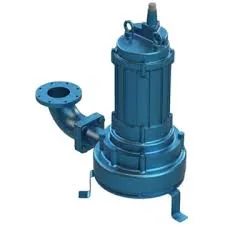English
- Afrikaans
- Albanian
- Amharic
- Arabic
- Armenian
- Azerbaijani
- Basque
- Belarusian
- Bengali
- Bosnian
- Bulgarian
- Catalan
- Cebuano
- Corsican
- Croatian
- Czech
- Danish
- Dutch
- English
- Esperanto
- Estonian
- Finnish
- French
- Frisian
- Galician
- Georgian
- German
- Greek
- Gujarati
- Haitian Creole
- hausa
- hawaiian
- Hebrew
- Hindi
- Miao
- Hungarian
- Icelandic
- igbo
- Indonesian
- irish
- Italian
- Japanese
- Javanese
- Kannada
- kazakh
- Khmer
- Rwandese
- Korean
- Kurdish
- Kyrgyz
- Lao
- Latin
- Latvian
- Lithuanian
- Luxembourgish
- Macedonian
- Malgashi
- Malay
- Malayalam
- Maltese
- Maori
- Marathi
- Mongolian
- Myanmar
- Nepali
- Norwegian
- Norwegian
- Occitan
- Pashto
- Persian
- Polish
- Portuguese
- Punjabi
- Romanian
- Russian
- Samoan
- Scottish Gaelic
- Serbian
- Sesotho
- Shona
- Sindhi
- Sinhala
- Slovak
- Slovenian
- Somali
- Spanish
- Sundanese
- Swahili
- Swedish
- Tagalog
- Tajik
- Tamil
- Tatar
- Telugu
- Thai
- Turkish
- Turkmen
- Ukrainian
- Urdu
- Uighur
- Uzbek
- Vietnamese
- Welsh
- Bantu
- Yiddish
- Yoruba
- Zulu
Telephone: +86 13120555503
Email: frank@cypump.com
Oct . 12, 2024 14:27 Back to list
chemical feed pumps
Chemical Feed Pumps An Essential Component in Industrial Processes
Chemical feed pumps play a crucial role in various industrial processes, particularly in sectors such as water treatment, agriculture, and chemical manufacturing. Designed to transport chemicals in a controlled and precise manner, these pumps ensure the proper dosage of substances needed for optimal operational efficiency.
One of the primary functions of chemical feed pumps is to maintain the quality of the end product. In water treatment facilities, for instance, the accurate dosing of disinfectants, coagulants, and other treatment chemicals is essential to ensure safe drinking water. A malfunction or error in the feed pump can lead to insufficient treatment, posing health risks to consumers. Thus, reliability and accuracy in chemical feed pumps are non-negotiable.
There are different types of chemical feed pumps, each suited for specific applications
. Positive displacement pumps and peristaltic pumps are among the most common types used. Positive displacement pumps are known for their ability to handle high viscosity fluids and provide consistent flow rates, regardless of changes in pressure. On the other hand, peristaltic pumps operate by compressing a flexible tube, making them ideal for sensitive fluids as they minimize the risk of contamination.chemical feed pumps

Understanding the materials of construction is essential when selecting a chemical feed pump. Depending on the chemicals being handled, materials such as stainless steel, polypropylene, or fluoropolymers may be required to withstand corrosion and abrasion. Additionally, the pump must be compatible with the chemical properties, such as pH and temperature, to ensure longevity and minimize downtime.
The installation and maintenance of these pumps are equally vital. Regular maintenance checks can prevent common issues such as clogging, leaks, or wear and tear, which can lead to operational disruptions. Moreover, integrating advanced monitoring technologies can enhance efficiency by providing real-time data on pump performance and allowing for predictive maintenance.
As industries continue to focus on sustainability, the demand for efficient chemical feed pumps is rising. These pumps not only reduce waste and chemicals' overuse but also support the drive towards environmentally-friendly processes. Investing in high-quality chemical feed pumps thus represents a commitment to safety, efficiency, and sustainability in industrial operations.
In conclusion, chemical feed pumps are integral to the reliability and efficiency of numerous industrial applications. Their design, materials, and maintenance are critical factors that influence overall performance and safety. With the right pump, industries can ensure precise chemical dosing, contributing to higher quality products and safer environmental practices.
-
Heavy-Duty Mining Sludge Pumps - Wear-Resistant Slurry Handling
NewsAug.02,2025
-
Horizontal Split Case Pump with GPT-4 Turbo | High Efficiency
NewsAug.01,2025
-
ISG Series Pipeline Pump - Chi Yuan Pumps | High Efficiency, Durable Design
NewsAug.01,2025
-
Advanced Flue Gas Desulfurization Pump with GPT-4 Turbo | Durable & Efficient
NewsJul.31,2025
-
ISG Series Vertical Pipeline Pump - Chi Yuan Pumps | Advanced Hydraulic Design&Durable Construction
NewsJul.31,2025
-
ISG Series Vertical Pipeline Pump - Chi Yuan Pumps | Energy Efficient & Low Noise
NewsJul.31,2025










